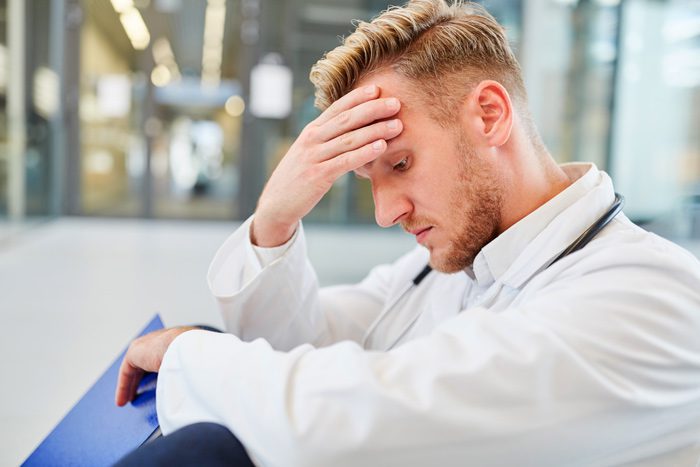 Addiction doesn’t discriminate. People of all ages, races, genders, and socioeconomic statuses struggle with substance abuse. This includes individuals who work in the healthcare industry.
Addiction doesn’t discriminate. People of all ages, races, genders, and socioeconomic statuses struggle with substance abuse. This includes individuals who work in the healthcare industry.
Factors That Make Healthcare Professionals Vulnerable
No two people with a substance use disorder are exactly alike, but some of the factors that can make doctors, nurses, and other medical professionals vulnerable to addiction include:
- Ease of access. Medical professionals abuse alcohol at rates that are similar to what is found in the general population, but they are significantly more likely to abuse prescription drugs. There are procedures in place to count medication at every healthcare facility, but someone who is familiar with these procedures knows how to get around them. Having easy access to powerful opioids and other medications with a high potential for abuse can put someone who is already vulnerable at greater risk.
- Stress. Doctors, nurses, and other medical professionals have high-stress jobs where they make life or death decisions. When they don’t have a healthy way of coping with professional stress, the temporary escape of substance abuse becomes too hard to resist.
- Guilt. Losing a patient is never easy. Medical professionals often feel intense feelings of guilt for not being able to “save” everyone. This creates a powerful motivation to turn to substance abuse for relief.
- Long work hours. Working long hours without sufficient time for rest and relaxation can exacerbate mental health symptoms. This can lead to substance abuse as a form of self-medication.
- Chronic pain. Lifting, bending, and standing for long shifts can be physically draining, especially for nurses who handle the bulk of hands-on patient care. Substance abuse provides a temporary fix for chronic pain.
- Overconfidence. Having medical training can provide a false sense of security. Doctors, nurses, and other medical professionals who understand how different drugs affect the body may convince themselves that they are “smart” enough to avoid addiction.
Of course, a family history of substance abuse, a co-occurring mental health disorder, and a past history of trauma further increase the risk of a healthcare professional developing an addiction.
Signs of Addiction
Signs a healthcare professional might be struggling with an addiction include:
- Changing jobs frequently
- Volunteering to administer medication
- Being unusually friendly with doctors who prescribe medication
- Incomplete or incorrect patient charting
- Wanting to work in the evenings, where there tends to be less supervision
- Frequent unexplained absences during the day
- Falling asleep on the job
- Patient complaints about poor quality care
- Complaints about patients not receiving their prescribed medication
- Professional and personal isolation
- Mood swings and erratic behavior
- Deterioration in personal appearance and hygiene
The majority of healthcare professionals who are abusing drugs or alcohol could be considered high-functioning addicts. They are able to maintain careers and relationships with others—appearing completely normal to the casual observer. It’s only when you look closely at their behavior patterns that you begin to see evidence of a problem.
Getting Treatment
Healthcare professionals are typically very reluctant to seek addiction treatment. Some of the factors at play include:
- They worry that acknowledging the problem will place their professional license in jeopardy, thus jeopardizing everything they’ve worked so hard to achieve.
- They view themselves as caregivers, not the recipients of care.
- Their loved ones are enabling their addiction by mistakenly assuming that a medical professional would be able to handle the problem on their own.
However, addiction is a progressive illness. The condition will only become more difficult to manage as time passes. Being proactive about seeking treatment is better than waiting until a mistake in patient care takes the decision out of your hands. In the majority of cases, a healthcare professional who voluntarily seeks treatment will not be prevented from returning to work. Making excuses and ignoring the problem won’t make it go away, but taking action can help you get your life and your career back on track.
At Waypoint Recovery Center, we provide individualized care for men and women struggling with drug or alcohol addiction. Our South Carolina residential treatment program offers individual, group, and family counseling with ongoing aftercare support designed to ease the transition back to independent living. If you’re ready to take the first step towards recovery, we can help.





